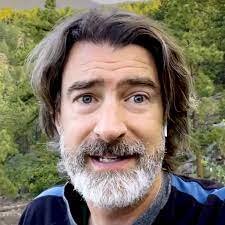The End of the World
Peter Zeihan’s job is to see the future.
To achieve it, he extrapolates from two under-appreciated realities:
People have stopped having kids (in quantities they used to)
The USA has lost interest in enabling global trade.
I've written on #1. So let's unpack #2, straight from his latest book, The End of the World (is just the Beginning).
The World America Made
After World War II, the United States had the only de-facto navy in the world. So we made a deal with our battered allies:
Uncle Sam: “Ok, guys. We’ll patrol the global oceans to guarantee your maritime trade. In return, side with us (not the Soviets)”
Allies: “Deal.”
The agreement worked. The Americans outlasted the Soviets and more importantly, we created a world in which anyone can trade for anything.
For the USA, it's meant cheaper goods (though not without job displacement). For other countries (think: Asia), it provided a pathway to prosperity that had never before existed.
Now, countries didn’t need to have oil, or even food for that matter. They could focus on what they were good at and trade for the the raw materials they needed to industrialize.
For the ultimate example…
Consider China
Fifty million people died of famine in China. In 1960.
Sixty years later, the world’s second largest economy mints 3000 millionaires per day.
What happened?
To oversimplify, China began to import things they needed (starting with food inputs and oil) and export the things they made (everything at the time of this writing).
And here’s the key: the PRC did it with every incoming and outgoing shipment being guaranteed by Uncle Sam’s boats.
What’s the Rub?
As you read this, there are thousands upon thousands of cargo ships in the Indian Ocean, each carrying millions of dollars in Chinese (and others’) imports and exports.
The ships’ defenses? Usually nothing.
The ships’ top speed? <20 mph
These multi-million dollar sitting ducks will slowly pass their Asian neighbors, make the horn of India at a snails’ pace, all before passing directly through multiple chokepoints in the middle east.
The 18-trillion dollar question: What keeps these ships safe?
Answer: Rhymes with “Blue Dress Gravy Meals”
(US Navy Seals, see Captain Phillips)
Follow-up: What happens if America stops guaranteeing these shipments?
Answer: We don't know.
This brings us to the crux of the book.
There was a time where it made sense for America to spend massive amounts of money and effort to patrol planet earth. The reasons for doing this are now gone.
The soviet threat that started it all? Gone since ‘91. Need for for foreign oil? See fracking.
In 2023, the US is:
A net-energy exporter.
Relatively unreliant on global trade. And most importantly:
Completely uninterested in subsidizing the rise of the CCP.
And our shrinking global Navy is beginning to reflect these realities.
Critiquing Zeihanism
My critique: like most prophets of doom, Zeihan underestimates the abilities of humans to adapt to significant changes. I find it unlikely that a hunger-games scenario ensues anytime soon on the global seas.
Even so, without the free-ride of the US Navy, the economics for trade-dependent countries could change quickly and drastically.
Are Vietnamese textiles still a good value when shipping insurance prices have quintipled? Is it still worth it for China to send iPhones to England when they have to pay off every country along the way to protect (and not take) their stuff?
We’re one missing freighter from finding out.
Summary
The End of the World is a straightforward prediction of what follows in a world with:
Less babies
Less U.S. Armada (and therefore less trade)
Nations that make babies and do things in-house and with close neighbors will go on thriving (see US, France). Countries that have banked their futures on free trade and specialization… may be in for a bumpy ride.
Despite his flaws (consistent “homer bias”, negative Nancy, overdramatic at times), if you want to understand the geopolitical dynamics shaping our future world, you may benefit from a (small) dose of the hiker-man from Iowa, Peter Zeihan.
For the non-reader consider his interview on the Joe Rogan Experience as a jumping off point:






